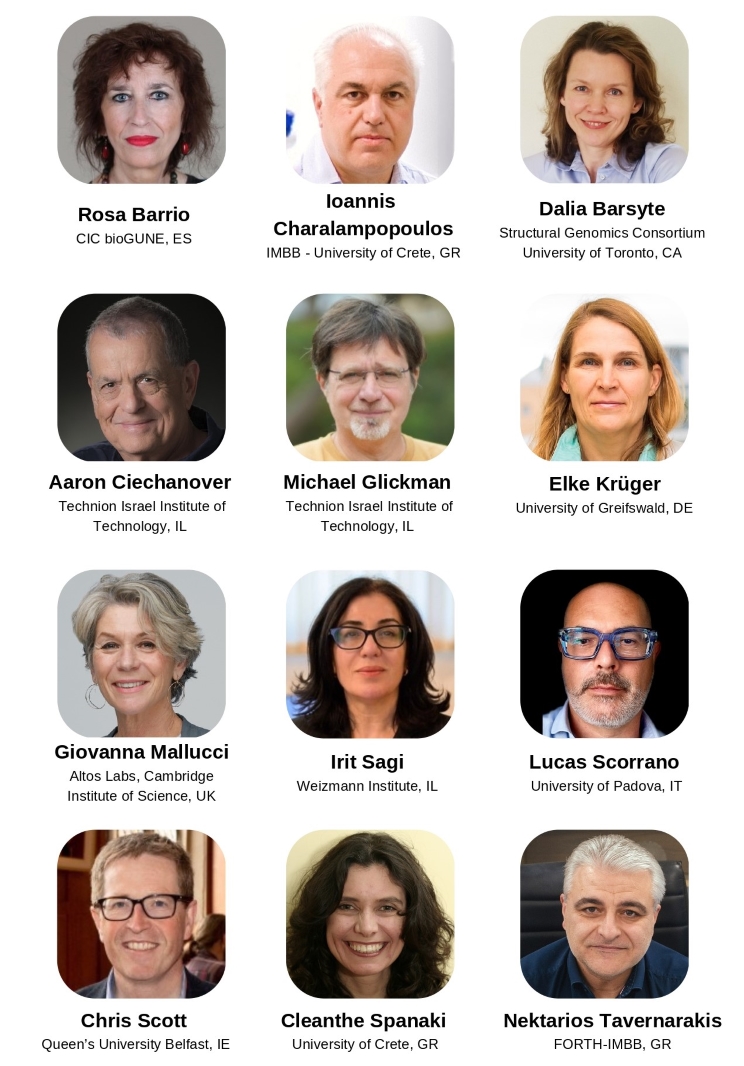Fourth Annual Meeting of the ProteoCure COST Action
Atlantis Aquila Hotel, Heraklion, Crete, Greece
May 20-23, 2025.
The COST action ProteoCure is happy to invite you at its fourth annual meeting. In line with the 3 previous meetings (Ljubljana, Slovenia, May 2022; Zagreb, Croatia, June 2023; Warsaw, Poland, May 2024), this conference aims at gathering European research teams and companies sharing the objective to develop new approaches and strategies to selectively manipulate protein fate for therapeutic or biotechnological purposes.
Indeed, ProteoCure's goal is to help uniting individuals from academia, clinical sector and industry studying proteostasis, i.e. the mutiple and intricate processes regulating protein expression and function, as well as its manipulation for therapeutic or biotechnologic needs.
An important objective of ProteoCure is also to contribute to the training of the next generation of scientists. To favor participation and visibility of our young colleagues, travel grants will be offered and the scientific program will be organized in order to permit as many short talks as possible.
Keynote speakers
-alphabetic order-
(see corresponding tab for more details regarding the speakers)

About COST and the COST Action ProteoCure
The European Cooperation in Science and Technology (COST) is a funding organisation for the creation of research networks, called COST Actions. These networks offer an open space for collaboration among scientists across Europe (and beyond).
The ProteoCure COST Action aims to foster research and innovation in the field of proteolysis with the goal of manipulating the proteolysis machinery for the development of novel, specific and efficient therapies.
Proteins are essential molecular actors in every cellular process. From their synthesis to their degradation, they are subject to continuous and precise control mechanisms to ensure that they properly and timely take on their functions to fulfil cellular needs.
Proteolysis (i.e. degradation of proteins) is a key biological process that directly controls individual protein expression levels and ensures the degradation of abnormal proteins. Proteolysis malfunctions can either lead to accumulation of deleterious proteins or toxic protein aggregates, or to excessive degradation and therefore insufficient expression of normal proteins. Hence, alterations in proteolysis are implicated in multiple human diseases such as cancer, degenerative diseases, developmental and aging disorders, as well as in infectious diseases. Manipulating the proteolytic machinery to selectively control abundance of specific proteins is a strategy with enormous potential for therapeutic intervention.
